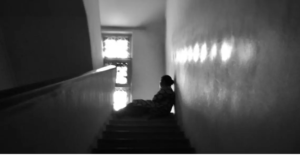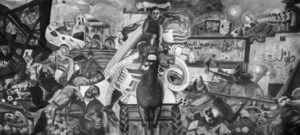The Wire Staff
The district school board in Toronto, Canada’s largest city, has voted to recognise that caste oppression exists in Toronto schools, the Globe and Mail reported.
It has asked the Ontario Human Rights Commission to help create a provincial framework that addresses caste discrimination and oppression, the report said.
The motion was voted upon late Wednesday, with 16 trustees voting in favour and five against.
The newspaper reported that the board also agreed to create a working group of people who identify as Dalit or caste-oppressed. This is believed to be the first time a school board has acknowledged the existence of caste oppression in Canada, it added.
Toronto District School Board (TDSB) trustee Yalini Rajakulasingam told the daily that caste-oppressed people do not come forward to share their stories of oppression because there is nothing in place to deal with the problem. “There is no category to record caste [oppression]. So it is not being recorded as caste. This does not mean it is not happening,” she said.
She told the daily that the board’s partnership with the human rights commission will remedy that.
The move comes nearly two weeks after Seattle became the first US city to ban caste discrimination, based on a vote by the city council.
“This motion is not about division, it’s about creating healing and empowering communities and providing them safer schools that students deserve,” Rajakulasingam told the newspaper.
“In Seattle, 4% of the community identify as South Asian. At the TDSB, we are at 22%,” she added.
She said that parents who identified as members of the oppressed castes told her about incidents where their children were bullied and harassed.
According to Hindustan Times, TDSB is the largest school board in the country, and serves approximately 235,000 students in 583 schools.
“The original motion was changed a bit since the school board alone could not create this kind of framework. The Ontario Human Rights Commission getting involved will open up discussion further,” Chinnaiah Jangam, an associate professor at Carleton University and co-founder of the Canada-based South Asian Dalit Adivasi Network, told the daily.
He added that this is a historic moment and that the board has opened the doors to discussions on caste oppression everywhere and not just in schools.
The newspaper also reported that the board’s proposal had drawn sharp opposition, especially from a group called the Canadian Organization for Hindu Heritage Education.
The group said that adding caste to the list of protected identities is “Hinduphobic”.
“There is little evidence or reports of ‘caste oppression’ in Toronto and for that matter Canada. Hence the declaration that ‘there is rise in documented anti-caste discrimination in the diaspora, including in Toronto’ makes the motion misleading, prejudiced, and lacking in integrity,” the petition said, which has more than 5,000 signatures, the report said.
(Courtesy: The Wire.)
Why I Am Grateful for the Toronto School Board’s Resolution on Caste
Trina Kumar
My name is Trina Kumar and I am a college student and member of Sadan – the South Asian Dalit Adivasi Network of Canada. I was so excited that the Toronto District School Board (TDSB) made history by passing a powerful new resolution for caste equity. Introduced by caste-oppressed trustee Yalini Rajakulasingam, it speaks to the suffering of caste-oppressed kids like me in Toronto schools, and I am genuinely relieved to know that our pain will finally be recognised.
This resolution acknowledges, for the first time in Canadian legislative history, that caste discrimination exists. Now the TDSB will work with Dalit families and the Ontario Province Human Rights Commission to make sure caste discrimination in Toronto schools is addressed.
This matters to me because I faced a lot of caste bullying in Greater Toronto schools. People made comments about my darker complexion, said I was whitewashed because I didn’t follow their upper-caste rituals, and made fun of me for being a Dalit Christian. I found this bullying confusing; I wondered why caste mattered so much to my fellow classmates, especially since we are all Canadian. But the problem is that in their dominant caste homes, they are learning oppression, while in my family we are hiding in the closet. I really hated this.
I had so many experiences that brought me to tears. In the 12th grade, for example, a dominant caste boy approached me and said that I would not be sold for even a penny if I was auctioned for sex because of my dark skin and caste. It traumatised me for many days. That’s how deep racism, colourism and casteism run in Greater Toronto schools. To this day I do not want to talk about this experience, and there is no way I would report this as I don’t even think the teacher or the principal would understand why this is so wrong. But this kind of discrimination is common. I know of many stories of other Dalit children who hear caste slurs thrown around the playground. Stereotypes about caste-oppressed people as criminals persist. I don’t think my classmates are bigoted, but I do believe their parents need help. Through more learning, we could build an understanding between all of us.
This reminds me of a recent experience I had, when a new friend discovered at lunch that I was Dalit. We were at a restaurant and I was excited to see what she wanted. She said vegetarian, and I said “Really? I think I’m going to get turkey.”
She then gave me a funny look, and said, “What?! How can you eat meat?“ I said to her, “What is the problem, we all eat meat, right?” And then I realised that she didn’t know I was Dalit. I came out to her, and all of sudden everything changed. She said that she did not think we could hang out anymore and that I was not worthy enough to meet her parents because they don’t approve of intercaste relationships. In fact, her sister had been beaten because she started an interfaith and intercaste relationship.
I felt embarrassed and angry that she could treat me like this. Who cares what we eat? Who cares who we worship? Shouldn’t we all just be friends? But then I remembered that it is common among my dominant caste friends to be beaten by their parents if they cross caste and religious lines. In fact, many of my friends were shocked that my parents didn’t beat me and let me choose who I was friends with and who I wanted to be.
This is what is happening in Toronto schools, and students like me deserve better. I really appreciated the student trustee who spoke up about this, because this decision is about making children safer. Even the fact that three trustees including Yalini got cyber-bullied and threatened tells you how serious this problem is.
I also don’t appreciate dominant caste adults telling Dalit children like myself that our experience doesn’t matter. They don’t go to our schools. They don’t face bullying, and my life and my experience are not a political football for them to work out their issues.
I want to just be free! I love being Dalit now.
And being a young Dalit in college, I know that the future is mine for the taking. I just want to make sure that while I move on from my experiences of being bullied due to caste, I am committed to organising with Sadan to make sure no one has to go through what I went through. That is why I am so grateful that the majority of the trustees listened to people like me and the families in Sadan about caste discrimination, and have let the oppressed lead.
Yes, this may make dominant caste people uncomfortable, but maybe it’s time for that. Their children are really suffering because they are not working on their casteism. Maybe if they use this motion as a time to learn, they can have better relationships with their own families and with Dalit families like mine.
I am optimistic because now that we are working with the Ontario Human Rights Commission, we can not only make a difference for Toronto kids but for all South Asian families across the province. And it all started with Yalini, who came out. The future is bright for students and families like mine, and I am grateful to the TDSB for standing with the caste equity movement.
I can’t wait till we make all of Canada safer for caste oppressed people. Jai bhim!
(Trina Kumar is a proud student youth member of South Asian Dalit Adivasi Network. Courtesy: The Wire.)




